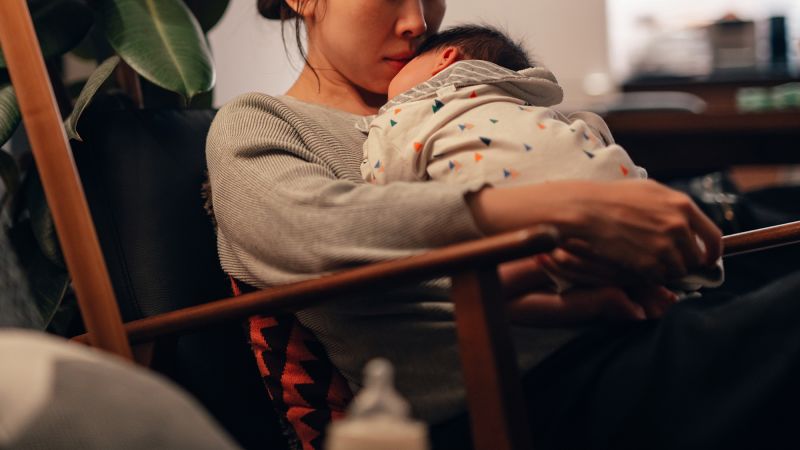CNN —
American parents are feeling overwhelmed and exhausted by the “dizzying pace” of the world and this is a public health concern, said the Surgeon General’s advisory released Wednesday, calling for a shift in policy and cultural norms.
“The work of parenting is important not just to the health of children but to the health of society,” wrote U.S. Surgeon General Dr. Vivek Murthy, who is also a father of two. “We know that the well-being of parents and caregivers is directly linked to the well-being of their children.”
The recommendations state that not only are mothers and fathers working longer hours today than they did in 1985, but they are also spending significantly more hours each week on primary child care — and that doesn’t include the total time they spend with their children. “The demands of both work and child care take away from quality time with their partner, sleep, and leisure time as parents,” the recommendations state. The burden is even greater for parents who are caring for elderly parents or other loved ones.
At the same time, a “culture of comparison” around life milestones, parenting and achievements — often perpetuated online — “has left many families feeling exhausted, burnt out and constantly left behind,” Murthy wrote in his 36-page advisory.
The recommendation cited a 2023 survey of adults by the American Psychological Association that found 33% of parents reported experiencing high levels of stress in the past month, compared with 20% of other adults.
What’s needed is a cultural shift, the recommendations say: “It is time to recognize that parenting is vital to society and to value and respect the time spent raising children as equally as time spent in paid work.” Parents and caregivers need social support and the ability to talk openly about the stresses of parenting. Like previous Surgeon General recommendations, they say more connection is needed to combat parental loneliness and isolation.
“The stress and mental health issues parents face, like loneliness, workplace well-being and the impact of social media on young people’s mental health, are not always visible but can take a significant toll,” Murthy wrote in a New York Times op-ed. “It’s time to recognize that these constitute a serious public health concern for our nation. Parents who feel pushed to their limits deserve more than platitudes — they need concrete support.”
Get CNN Health’s weekly newsletter
The recommendations call for implementing nationwide paid family and medical leave and paid sick leave for all workers, and increasing support for programs like child care subsidies, universal preschool, and Head Start. Employers can expand programs to support parental wellness, such as paid time off, flexible work schedules, and training for managers on stress management.
Communities, schools and health care providers can also help by offering additional testing and support for everyone, especially parents who are most at risk. The recommendations say more research is needed and encourage the development of standardized measures of mental health and well-being specific to parents.
Individual actions can also make a difference: Picking up to help a parent eat or shower “goes a long way in making them feel supported and looked after,” he said.
“There’s a difference between saying something is important and making it a priority,” Murthy told CNN on Wednesday. “If we’re really going to make parental support a priority, we have to make a major shift in our culture so that parenting is recognized as central to the health and well-being of our society.”
Surgeon General advisories are public statements that draw attention to public health issues that require awareness and action. Mursi has previously issued advisories on health misinformation and gun violence, but also on mental health topics such as loneliness and isolation and the impact of social media on young people.
“The bottom line is we have to start thinking about mental health as health. Mental health is just as important as physical health,” Murthy said Wednesday. “If we can take care of both our mental and physical health, we’re more likely to live happy, healthy and fulfilling lives, and that’s what we all want for ourselves and especially for our children.”



